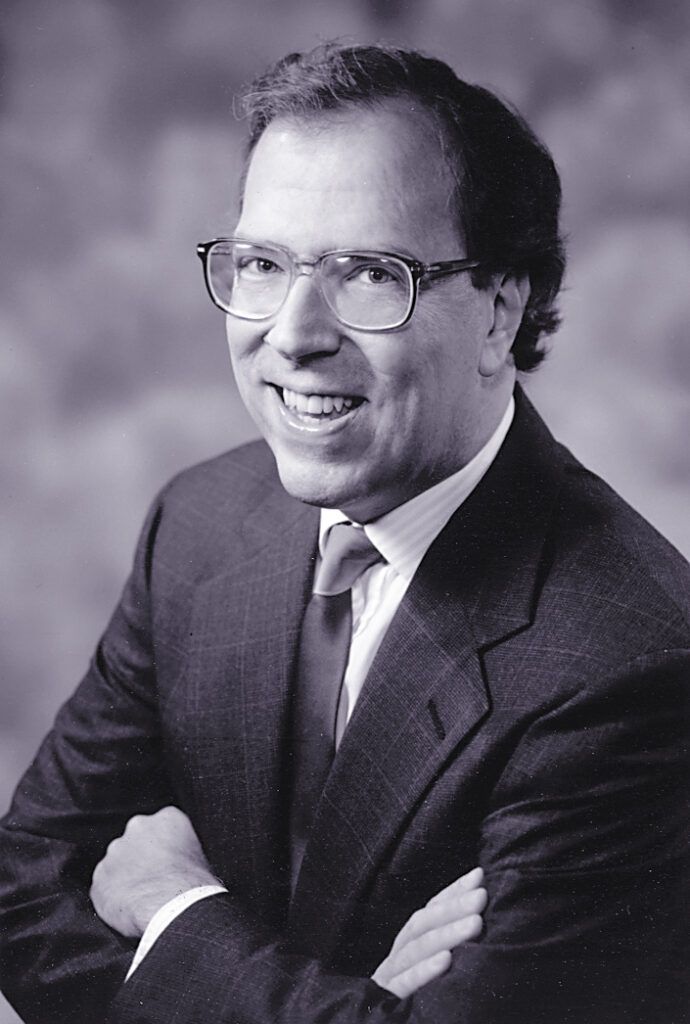“Editor,” derived from the Latin edere (to produce or bring forth), may well be the most ambiguous word in the English language. It can signify anything from the eagle-eyed proofreader who fixes typos to the visionary who works through others to create brand-new, world-changing intellectual capital. The thread is selflessness; the ideal editor helps others shine.
The late, great Jim Kristie, who served and shaped Directors & Boards for 35 years until retiring in early 2017, did exactly that. Humble to the core, he never revealed how much he contributed as editor to each of the 140 issues of D&B produced under his watch. Nor did he let many of us know the challenges of the long illness that would take him from us in April 2021, leaving me bereft of a friendship forged over 40 years.
I first met Jim in 1981, when I interviewed him, along with associate publisher Leonard Zweig, to succeed me as editor of Directors & Boards. We had interviewed a good number of candidates, but Jim stood out. With a spit-and-polish professional demeanor that hinted at his earlier career in the Navy, and with eloquent writing samples from his time on the staff of Business Philadelphia magazine, Jim was the obvious choice.
Because I remained with MLR Media as editor of Mergers & Acquisitions magazine until I married and moved away, I had the privilege of working in the same office as Jim for the next three years. We spent most of our time editing authors for our sibling publications, but one day I asked Jim to edit an article I had written. Jim didn't change much in my draft, but he added a riveting metaphor. I had written “located throughout the United States” and he changed it to “dotting the American landscape.” With a jolt of recognition, I realized that this is what editors do — they lift us from the mundane to the inspiring.
I was not alone in appreciating Jim as an editor; when he retired there was an outpouring of praise. Publisher Bob Rock recalled that when Jim retired, he and Jim received many letters from readers.
All of them praised Jim for his editorial skills, insights and perspectives. One recently retired chairman mentioned Jim's “knack for seeing around corners,” referring to his abilities to anticipate issues and challenges coming to the fore. Another wrote: “You are a legend. Thanks for your many contributions over four decades to improve corporate governance.” A leading top management consultant spoke of Jim's “uncanny capability to stay fresh,'' which made D&B “the best of the breed.” And a leading scholar in corporate governance wrote: “You have masterminded the great content of the definitive magazine in the field, read and appreciated by all.”
Jim and his loving wife, Jean, were part of my support system. When my husband, Bernard, and I tied the knot in 1982, they traveled to Virginia to celebrate. When I was invited to sing an aria at Palumbo's, a restaurant/nightclub in South Philadelphia, they showed up in the audience. Jim was very proud that his daughter, Leah, studied music and became a singer, and he also often spoke of his son, Danny. Their biblical names did not surprise me. Jim and Jean shared a deep faith.

Jim and I stayed in touch through the years. I often called him “brother,” “little brother” and “baby brother,” titles he graciously accepted because he knew they meant a lot to me (since I had only sisters). When we attended governance conferences, we always made it a point to talk face to face. The last time I saw him was at a Weinberg Center conference at the University of Delaware in 2017 just after he retired. He was no longer there in an official capacity but had come to see and support friends. That was Jim.
For his final issue of D&B, he contributed an essay “35 for 35,” with timeless quotes from the many legendary authors he was successful in recruiting over the years — such as Roderick Hill and Felix Rohatyn, to name a few. Fortunately for that same issue he also offered his own in an essay on “What I Learned,” with wisdom that bears repeating here:
• “There really is not much new under the sun. The role of the board — to protect the enterprise and guide its future — is not much different now than when I joined Directors & Boards in 1981. How the board performs its role has changed — i.e., in its board composition and some of its practices (e.g., having a lead director) — but its basic role remains as established as ever.”
• “There are best practices and then there are right practices. Best practices are evolving standards, but may not be right for every board's circumstances (for example, separating the chairman and CEO positions).”
• “Unless you are a fly on the boardroom wall, it is impossible to know how good or bad a board is. Some of the worst-performing companies may have the best directors trying to right the ship, while more steady-state companies may have a board on cruise control. Who knows what the true nature of a board is unless you are in the mix?”
• “Governance, while ostensibly about corporate bylaws, the rule of law and the directives of regulation (federal, state, SROs), is really all about people and human nature and group dynamics. My definition of corporate governance: a group of smart, accomplished people sitting around a table trying to make good decisions on behalf of the enterprise.”
• “The ‘job one' of the board is to make sure the right person is running the company. I rejected that notion in my early days. There has got to be more to the prime duty of the board, I thought. My feeling now is that if the board has the right CEO, everything else will have a greater tendency to fall squarely in place.”
• “The only governance principle we should really need (as in life in general) is the Golden Rule.”
Leave it to Jim to mention the Golden Rule. It was certainly what he followed.
One of Jim's first actions as editor was to honor my father, Stanley Foster Reed, with a place on the masthead as the founder of Directors & Boards. Throughout my father's life Jim continued to show both of us respect, inviting us to contribute to the magazine from time to time. When my father died in 2007, Jim invited me to write a tribute. One of my reminiscences involved a postcard that Dad had sent me in 1976 telling me about his plans to start a magazine for directors. I sent my tribute to Jim without a title. Jim found the perfect one: “Postcards from the Edge” — referring to a quirky 1987 novel and 1990 movie about a mother passing the baton to her daughter. It was the perfect title, lifting the ordinary postcard into an agent for communication between heaven and earth.
My postcard to Jim today would be short and sweet:
Dear Jim: All is well. Wish you were here. Your Big Sister.



